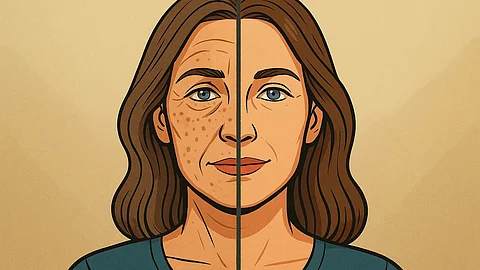What Can Retinol Treat?
Retinol is a dynamic multitasker in the truest sense.
Acne: Retinol keeps pores clear by preventing dead skin and oil buildup. While it might cause an initial breakout (often called a “retinol purge”), with consistency, it helps reveal clearer, smoother skin.
Acne Scars: Milder acne scars, particularly post-inflammatory pigmentation, can fade over time with retinol. It reduces inflammation and boosts cell renewal, but may not be as effective on deep, pitted scars.
Hyperpigmentation and Dark Spots: Whether from sun exposure, ageing, or acne, dark spots can be lightened over time. Retinol disrupts melanin production and encourages even skin tone, though patience is key.
Enlarged Pores: By increasing skin cell turnover and preventing congestion, retinol can help reduce the appearance of large pores, making the skin look smoother and more refined.
Melasma: A tricky condition often triggered by hormones and sun exposure, melasma causes brown or grey patches. Topical retinoids like tretinoin can help fade these spots, though pregnant individuals should avoid retinoids altogether.
Stretch Marks: Early-stage stretch marks (pink or red) may respond to retinol by boosting collagen and improving skin texture. However, deep or long-standing marks are harder to treat.
Fine Lines and Wrinkles: This is where retinol shines. It helps prevent collagen breakdown, improves skin elasticity, and diminishes fine lines over time, earning its reputation as an anti-ageing gold standard.(3)


